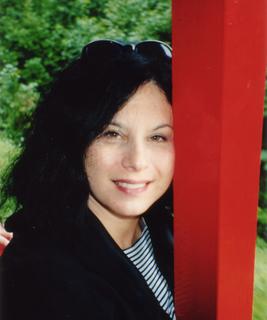 Maxine Chernoff (pictured above) lives in California, where (among other things) she co-edits New American Writing.
Maxine Chernoff (pictured above) lives in California, where (among other things) she co-edits New American Writing.Ms. Chernoff is the author of many books of poems, such as Among The Names, and six collections of fiction including Some of Her Friends That Year, a new and selected stories from Coffee House Press.
I am very happy to welcome her to Eyewear. She is one of the American writers of her generation who one should read, in order to know what contemporary American writing is, and what it will turn out to be.
I especially enjoy poems with the word "gentians" in them, being a fan of D.H. Lawrence, these blasted gentians being altered Bavarian Gentians. I should note that one of her novels is A Boy In Winter, which is a lovely mirroring of Larkin's novel title.
A House in the Country is Not the Same as a Country House
Not wanting to name it,
it stayed in its bed
Until a break
in the weather
uncovered the reason
the restive urge
Until he found a way
over the mountains by elephant
Until he rested a means
from the fog, until,
veiled but uncovered,
he managed to express
his longings in something
formerly characterized
as art among those
who make a fetish
of unmasking
the general motives
behind the tragedy
of belonging
He thought it was wrong
to express this panic among
the uncertain crowd
Displaying the colors
he had earlier
brandished
parsing the rhetoric
to reveal the sore
in the shrine
the blasted gentians
He sealed the hope
beneath the faraway
recognitions
a thread of cognition
to angle the moonlight
constructing a realism
that consoled
even as it found
itself wanting
poem by Maxine Chernoff
Comments